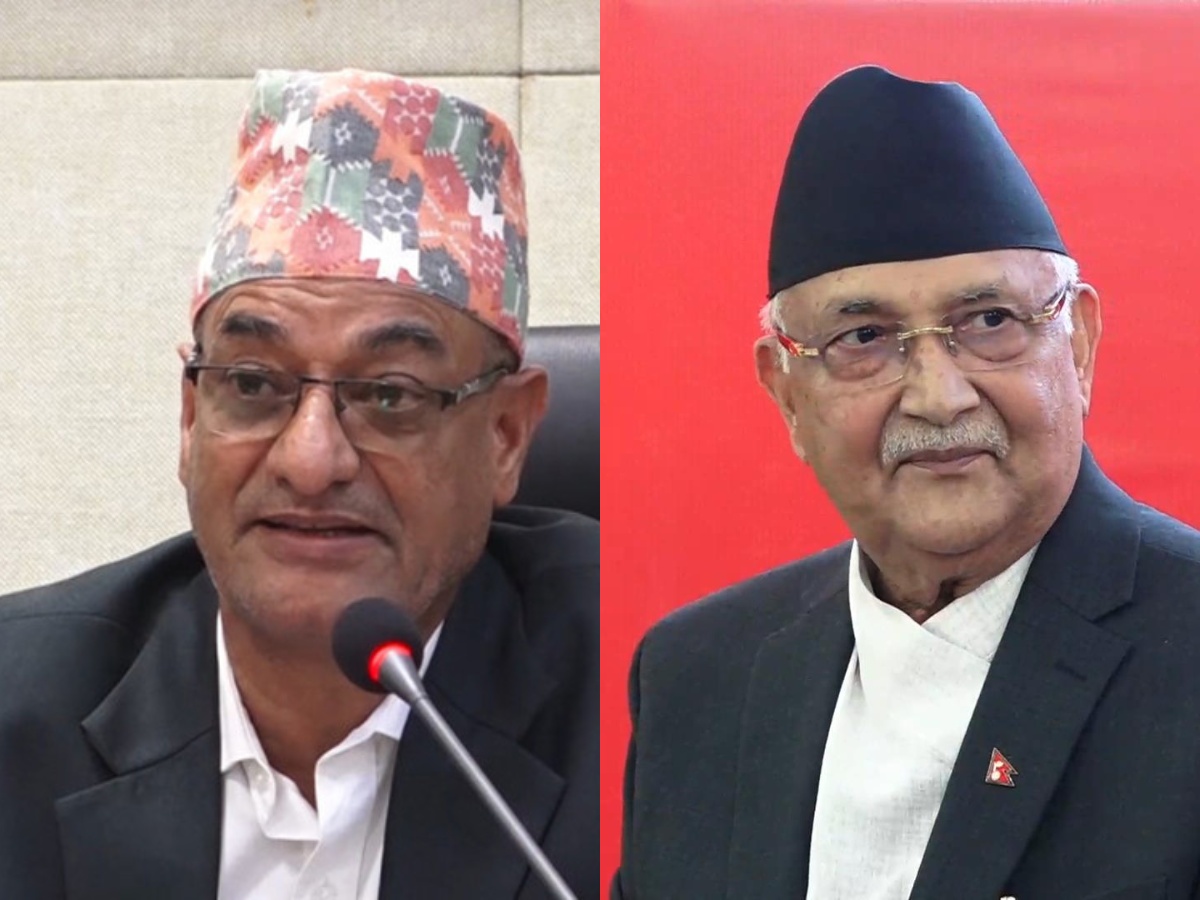

KATHMANDU: The investigation commission formed to examine the Gen Z protests of September 8 and 9 has returned the complaint filed against former Prime Minister KP Sharma Oli and former Home Minister Ramesh Lekhak back to the police.
On October 7, four individuals, including Purushottam Khatri, father of Rasik Khatri who died in the Gen Z movement, had filed a complaint at the District Police Office, Kathmandu, against Oli and Lekhak.
The complaint demanded investigation of Oli and Lekhak for crimes against humanity and the state.
However, instead of registering it, the police forwarded it to the investigation commission.
The commission returned the complaint to the police on Thursday, leaving them in a difficult position.
Complaints were filed not only against Oli and Lekhak but also against Kathmandu Mayor Balendra Sah and Gen Z activist Sudan Gurung.
On October 7, a complaint was filed against them on behalf of the UML-affiliated ANNFSU, demanding investigation for arson, criminal disturbance, and destruction of public and private property.
While the police had already sent Oli-Lekhak’s complaint to the commission, they were preparing to forward the Sah-Gurung complaint when the commission returned Oli-Lekhak’s complaint to the police.
With two types of complaints coming in simultaneously, the police had expected necessary decisions to come from the commission.
But now that the commission has returned the complaint, there is public curiosity about what happens next.
Police spokesperson SP Pawan Kumar Bhattarai said, “Since the honorable commission has returned the complaint to us, we will seek legal consultation regarding it.”
According to Bhattarai, first legal consultation will clarify the respective roles of the commission and the police.
Second, the police will study the directives issued by the Ministry of Home Affairs after the Gen Z movement.
“The police will do our work; regarding the complaint, we will take legal advice and then take the necessary legal steps,” Bhattarai told Nepal News.
After the Gen Z movement, when the situation normalized, the government led by Prime Minister Sushila Karki formed a judicial investigation commission.
The commission was formed under the chairmanship of former Justice Gauri Bahadur Karki by a cabinet decision.
The two other members of the Karki-led commission are former AIG Bigyan Raj Sharma and legal expert Bishweshwar Prasad Bhandari.
On September 21, the government issued a five-point mandate to the commission.
The five mandates included investigating material and human damages during the protests, studying and analyzing causes and submitting suggestions with a report, collecting information or petitions on damages and providing opinions for necessary action, suggesting measures to prevent recurrence of such incidents, and preparing a clear action plan to implement the recommendations in the report.
The commission was formed under the Commission Act.
After being published in the gazette, the commission started its work.
The commission is mandated to submit a report with recommendations to the government within three months from the start of its work.
“Given that the commission has returned the complaint, we will understand the commission’s jurisdiction as published in the gazette and then proceed with necessary legal steps,” SP Bhattarai said.
The police headquarters has not yet released an official position regarding the commission returning the complaint.
“The complaint was filed at the District Police Range; the office will take necessary action. The police headquarters has not taken a position on this yet,” said Nepal Police Spokesperson DIG Binod Ghimire.
Retired Nepal Police officials argue that the commission’s decision puts the police in a difficult position.
“In past large-scale protests, commissions were formed, and after submitting reports, instructions were received to take action. That does not seem to be the case now,” said former Deputy Inspector General Hemant Malla Thakuri.
According to Thakuri, by returning the complaint at this early stage, the police may face pressure from both sides.
The police will have the challenge of addressing complaints from both parties. “The police will face two types of problems: even if they do not register the complaint, there is no peace; if they do register it, problems may arise. Anyone could then risk filing complaints against anyone,” Thakuri said.
“In such a situation, it will be difficult for the police to carry out actions,” Thakuri added.
Thakuri said that historically, after reports from commissions of past large protests, action was taken.
“The commission’s decision may create additional problems for the government, which is responsible for conducting elections. We cannot say how the commission is directed, but investigators may face difficulties in carrying out their work,” he concluded.